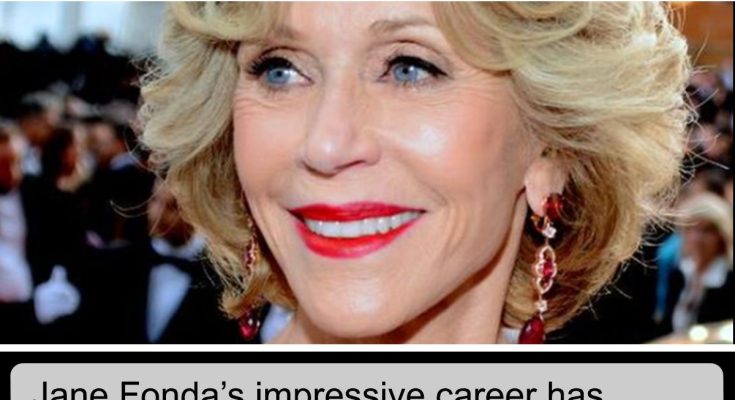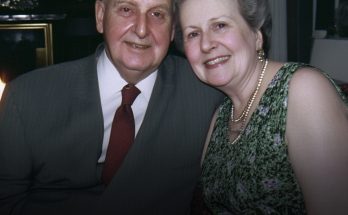Jane Fonda is an Oscar-winning actress who has continued working in film and TV into her eighties. However, there was a time she was perhaps as notorious as she was famous. In the 1970s, Fonda began getting involved in a host of liberal causes, such as the Black Panthers, the Women’s Movement, and the plight of Native Americans. Fonda’s activism caught the attention of the FBI – specifically, J. Edgar Hoover. But it was Fonda’s involvement with the Vietnam War that cost her her reputation with the American people.
A 1972 visit to Vietnam, in which Fonda posed for a photo op with the North Vietnamese, led to her tarnished reputation and the nickname “Hanoi Jane.” This nickname was not given lightly – Hanoi was one of the most notorious places where American POWs (like Senator John McCain) were held by the Vietnamese. Fonda’s activism took her too far, according to some, and gave the FBI free reign to attack her openly. Fonda vs. the FBI was an unfortunate and ongoing skirmish during the war, and it was a battle that Fonda just couldn’t win.
-
Fonda Was Actually Pro-Vietnam War In The Beginning
Photo: Dutch National Archives / Wikimedia Commons / CC BY-SA 3.0 nl
Surprisingly, at the beginning of the war, Fonda was practically indifferent to it all. She had been raised by a former Naval officer, and grew up believing that whatever reason the United States had to go to war was a good one. She said, “I grew up with a deep belief that wherever our troops fought, they were on the side of the angels,” and she didn’t have a second thought about American troops entering Vietnam.
That all changed when she began meeting veterans of the war who spoke out against the American effort in Vietnam. Fonda realized she needed to dig deeper to find out the whole truth about the war. She eventually came to the decision that she needed to fight against the war with all her might.
-
In 1972, Fonda Was Invited To Hanoi, Vietnam, By ‘The Enemy’ – And She Went
Fonda had been involved with numerous progressive causes throughout the early ’70s, but it was her trip to Vietnam that stirred the most gossip and incited the most vitriol in Americans. In 1972, the North Vietnamese invited her for a two-week visit to the city of Hanoi, which happened to house one of the most notorious POW camps of the Vietnam War, ironically given the misnomer the “Hanoi Hilton” by those who had the unfortunate opportunity to stay there.
Fonda had been vocally anti-Vietnam War for a while, and part of the reason she accepted the invitation was to expose the horrible wrongdoings Americans were committing against the Vietnamese. Unfortunately, Fonda was already on the FBI’s radar, and this trip cemented her place in their black book.
-
The Trip Was Meant To Be A ‘Humanitarian Mission’ – Instead, It Ruined Fonda’s Reputation And Set The FBI On Her Heels
Fonda’s investment in the Vietnam War grew from vague disinterest to a rousing fight against American involvement in Vietnam. By the time she received her infamous invitation to Hanoi, Fonda had entrenched herself in the cause, speaking at rallies and founding organizations such as the “FTA,” which could have stood for either “Free the Army” or “F*ck the Army,” depending on what you preferred. She was outspoken against the war in sometimes controversial ways, once saying that Vietnam truly needed a “victory for the Vietcong,” the guerilla army the United States was fighting against.
Fonda’s mission was to go to Vietnam to expose American crimes against the Vietnamese, specifically, how the Nixon Administration was bombing and flooding civilian areas. Unfortunately, her mission backfired.
-
Although Many Of Fonda’s Actions Drew Criticism, It Was A Photo Op That Got Everyone’s Blood Boiling
Photo: Unknown / Wikipedia / Fair Use
A few of Fonda’s actions in Vietnam garnered negative attention – such as a radio interview in which she apparently tried to convince American airmen to put down arms against the North Vietnamese – but it was a single photograph that ruined her reputation forever, in the minds of some, at least.
The photo was of Fonda, laughing, sitting amongst the Vietnamese on an anti-aircraft gun. There was Fonda, an American, sitting with a smile on her face on a weapon designed to take down American pilots. Fonda tried to defend the photograph, saying she had no idea what she was sitting on when the photo was taken, and that she was laughing about something else; unfortunately, the image of her in a helmet surrounded by ‘the enemy’ while sitting on a weapon, was too much for the American people.
-
The FBI Targeted Fonda For A Long Time Before They Were Able To Snap The Infamous Photo
Although it was the photograph that spurred the anger of the American public, the FBI had been on Fonda’s tail years before her notorious visit to Vietnam. J. Edgar Hoover, the director of the FBI, had a bone to pick with white activists who supported civil rights, a cause Fonda was deeply entrenched in.
Fonda became radically liberal in the 1960s, spending countless dollars in support of the Black Panthers and even falling under suspicion of having an affair with one of the organization’s leaders. This cause backfired on her, as did her previous cause of trying to be a sort of white savior for Native Americans, who didn’t take too kindly to her efforts. Fonda had spent years cultivating an image of a radical protestor, something the FBI grew wary of. They even wire-tapped her phones, and it got to the point where Fonda began conversing in code with her fellow progressives.
-
The FBI Suspected Fonda Of Associating With ‘Enemies Of The State’
J. Edgar Hoover did not take too kindly to white supporters of African Americans, specifically the Black Panthers, whom Hoover was “personally intent on destroying.” Hoover’s tactics included targeting higher-profile, white supporters of the Panthers and other civil rights causes, specifically supporters (like Fonda) who gave money to those the FBI considered “enemies of the state.” Hoover actually targeted a lot of Hollywood stars.
Her involvement with the Panthers, which included a lot of out-of-pocket expenses, put the FBI on Fonda’s trail. However, it was her involvement with Vietnam years later that finally gave the FBI the ammunition it needed. Unfortunately for Hoover, he passed away two months before the infamous visit.
-
J. Edgar Hoover Supposedly Concocted False Stories About Fonda Threatening President Nixon
Photo: Marion S. Trikosko / Wikimedia Commons / Public Domain
Hoover was so intent on destroying Fonda, he went as far as to plant made-up stories about her in the media in order to decimate her reputation and give the FBI some sort of reason to give her trouble. Hoover and the FBI concocted a scandalous story that Fonda threatened President Nixon.
However, the FBI and the Nixon Administration could never seem to get any charges against Fonda to stick in the courts.
-
Fonda Was Probably Targeted Because Of Her (Rumored) Interracial Relationship
Photo: Unknown / Wikimedia Commons/Fair use
If it wasn’t bad enough that Fonda was funding the Black Panthers, a rumored relationship with a member of the organization would be the straw that broke the camel’s back for Hoover and the FBI. And an unsubstantiated rumor arose that Fonda was sleeping with someone high up in Black Panther leadership.
An anonymous FBI agent said that many agents took their missions personally because they were “so personally offended” by the idea of interracial relationships.
-
A Lot Of What Fonda Did May Have Been To Please Her Husband, Tom Hayden, Who Had Presidential Aspirations
Fonda’s second husband, Tom Hayden, was a communist with presidential aspirations and an “electric” energy that attracted Fonda right away. Fonda was enamored with her husband, and would literally sit at his feet as though worshipping him – it was no surprise, then, that she passionately took up his causes.
It was with his support that she went (alone) to North Vietnam, and they even named their first child after a Vietcong soldier who tried to assassinate Robert McNamara, then-US Defense Secretary. Both Fonda and Hayden had unfavorable opinions about the war in Vietnam.
-
Fonda Took Responsibility For Her Mistake, But The Stain On Her Reputation Never Quite Went Away
On her website, Fonda attempted to explain her actions in Vietnam:
“Someone (I don’t remember who) led me towards the gun, and I sat down, still laughing, still applauding. It all had nothing to do with where I was sitting. I hardly even thought about where I was sitting. The cameras flashed. I got up, and as I started to walk back to the car with the translator, the implication of what had just happened hit me.”
Fonda insisted in this explanation that she was not anti-soldier, only anti-war, and that her quick lapse in judgment went on to “haunt” her for the rest of her life.







